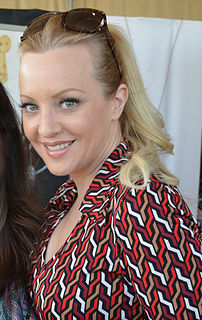A Quote by David Ogilvy
H. L. Mencken once said that nobody ever went broke underestimating the taste of the American public. That is not true. I have come to believe that it pays to make all your layouts project a feeling of good taste, provided that you do it unobtrusively. An ugly layout suggests an ugly product. There are very few products which do not benefit from being given a first class ticket through life.
Related Quotes
People always make this totally artificial distinction between what is commercial and what is good. They quote that maxim "Nobody ever lost money underestimating the public's taste" and I think that's very wrongheaded. I like to believe the audience is actually intelligent, because it's made up of other people like yourself.
What nobody tells people who are beginners… is that all of us who do
creative work, we get into it because we have good taste. But there is this gap.
For the first couple years you make stuff, and it’s just not that good. It’s
trying to be good, it has potential, but it’s not… your taste is why your work
disappoints you… We know our work doesn’t have this special thing that we want
it to have. We all go through this… It is only by going through a volume of work
that you will close that gap, and your work will be as good as your
ambitions.
The discovery of the good taste of bad taste can be very liberating. The man who insists on high and serious pleasures is depriving himself of pleasure; he continually restricts what he can enjoy; in the constant exercise of his good taste he will eventually price himself out of the market, so to speak. Here Camp taste supervenes upon good taste as a daring and witty hedonism. It makes the man of good taste cheerful, where before he ran the risk of being chronically frustrated. It is good for the digestion.
The great crime which the moneyed classes and promoters of industry committed in the palmy Victorian days was the condemning of the workers to ugliness, ugliness, ugliness: meanness and formless and ugly surroundings, ugly ideals, ugly religion, ugly hope, ugly love, ugly clothes, ugly furniture, ugly houses, ugly relationship between workers and employers. The human soul needs actual beauty more than bread.
One is born with good taste. It's very hard to acquire. You can acquire the patina of taste. But what Elsie Mendl had was something else that's particularly American––an appreciation of vulgarity. Vulgarity is a very important ingredient in life. I'm a great believer in vulgarity––if it's got vitality. A little bad taste is like a nice splash of paprika. We all need a splash of bad taste––it's hearty, it's healthy, it's physical. I think we could use more of it. No taste is what I'm against.
A good taste in art feels the presence or the absence of merit; a just taste discriminates the degree--the poco piu and the poco meno. A good taste rejects faults; a just taste selects excellences. A good taste is often unconscious; a just taste is always conscious. A good taste may be lowered or spoilt; a just taste can only go on refining more and more.

































